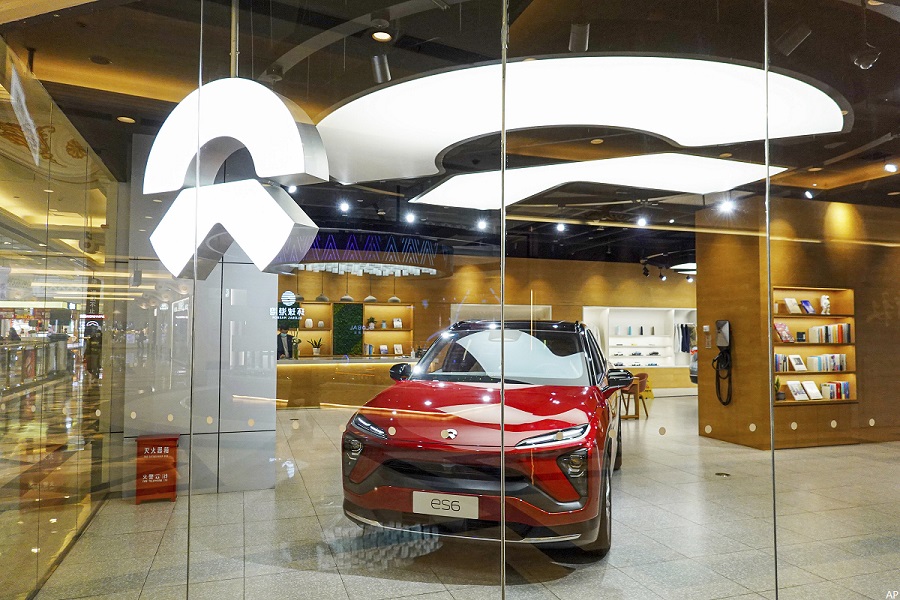
Auto manufacturing stocks are now at even more attractive levels after being undervalued for the past 10 years. But has the market been too punitive toward the industry?
The Morningstar Global Auto Manufacturers Index has fallen 19% this year, and while those stocks have broadly been undervalued, recent prices peg the group at an average discount of 37% to their fair value estimates. That is even cheaper than the average 20% discount for the group seen in the past decade. That includes names such as Nissan (NSANY), BMW (BMWYY), and General Motors (GM).
Driving much of the downward pricing pressure for these stocks are fears about inflation, a possible recession, rising interest rates, and the chip shortage, Morningstar strategist David Whiston says in a recent report.
The good news is that, despite all that, "we still see millions of units of pent-up demand today," Whiston says.
Car Stocks Poised to Gain on Demand Backlog
"Miles driven this year have for certain months been above prepandemic levels, unemployment looks good, and credit is reasonably available, so we don't see reasons to think auto demand will collapse for the next few years," Whiston says. Even if the U.S. does enter into a recession, Whiston thinks sales will actually increase from current levels if companies have the ability to build new cars.
Of the 12 U.S.-listed auto manufacturing companies covered by Morningstar analysts, nine are undervalued. The other three, Tesla (TSLA), Li Auto (LI), and Toyota (TM), are trading in a range considered to be fairly valued. Among those stocks that are undervalued, five of them have a Morningstar Rating of 5-stars.
5 Undervalued Auto Manufacturer Stocks:
The highest rate of inflation in decades has forced consumers to cut costs and limit spending. Rising interest rates also drive up borrowing costs for those who need to finance the purchase of a new vehicle, further limiting sales. Concerns about a possible recession have also dampened expectations for the cyclical industry, as investors expect a downturn to cut into demand.
Car Stocks Hampered by Chip Shortage
However, what has kept manufacturers from being able to meet that demand and operate at full capacity is the continuing chip shortage.
"Lack of inventory remains the main problem holding auto sales back from a full pandemic recovery," Whiston says. "No one from management teams across our autos coverage is saying the chip shortage will end this year, but the consensus is that there will be meaningful improvement in the back half of 2022."
And the industry’s inventory levels have improved, increasing to about 1.2 million in the U.S. from 973,000 in September 2021, according to Wards Intelligence. However, Whiston still sees inventory levels roughly 2 million vehicles short of where it should be, even after taking into account automakers’ plans to reduce inventory from prepandemic levels, which historically topped 4 million.
Even in the event of a recession, Whiston still sees growth in auto sales, noting that if U.S. total population per capita sales fell to levels seen in the 1980 and 1991 recessions, the industry would sell between 16.2 million and 16.4 million units.
"Considering how low volume has been, we think any automaker, auto supplier, or dealer CEO would be thrilled to see sales of 16.4 million," Whiston says. "This math leads us to say something that we will probably never say at any other time: A recession combined with the chip shortage ended or nearly ended could mean auto sales will go up in a recession." These are the automaker stocks offering the best value right now:
Nissan Motor
- (NSANY)
- Morningstar Economic Moat Rating: None
- Fair value estimate: $22
- Discount: 65%
"We think the current unfavorable operating environment has masked turnaround progress. Headwinds include the Ukraine war, the chip shortage, China COVID-19 lockdowns, and higher costs from raw materials, energy, logistics, and other inflationary pressures. Even so, we think Nissan emerges on the other side of its turnaround a leaner organization, working in closer collaboration with alliance partner Renault.
"For long-term investors with patience for a turnaround situation, we think the shares offer compelling value."
—Richard Hilgert, senior equity analyst
Stellantis
- (STLA)
- Morningstar Economic Moat Rating: None
- Fair value estimate: $36
- Discount: 62%
"If recent history is any indication, the combined Peugeot Group and Fiat Chrysler under Carlos Tavares' leadership has the potential to achieve synergy targets well ahead of management's four-year 80% objective.
"Management maintained 2022 guidance despite the Ukraine crisis, a weakening U.S. economy, and lingering effects of the chip crisis. The firm forecasts double-digit AOI margin and positive free cash flow. Due to better-than-expected pricing and cost-reduction measures in the first-half results, we raised our 2022 and 2023 AOI margin estimates to 13% from 10%, and to 11.5% from 9.5%, respectively."
—Richard Hilgert, senior equity analyst
Volkswagen
- (VWAPY)/(VWAGY)
- Morningstar Economic Moat Rating: None
- Fair value estimate: $36
- Discount: VWAPY 60%, VWAGY 48%
"Volkswagen's modular electric drive matrix platform underpins its current battery electric vehicle offensive. By the end of 2022, the company expects to have 27 BEV models derived from MEB. In 2023, Volkswagen will launch its unified battery cell strategy that targets an 80% sales volume penetration by 2030 and anticipates a 50% entry-level segment battery cell cost reduction as well as 30% savings in the volume segment. In 2025, Volkswagen expects BEV to account for 20% of global sales."
"We like that Volkswagen has pursued its common architecture manufacturing strategy. We think the strategy, which increases economies of scale, will continue to reduce cost. However, the MEB common architecture strategy presents a risk if consumer demand for BEVs does not materialize. Volkswagen targets an adjusted EBIT margin of 7%-8% in 2025, up from its 6.0% 15-year historical median."
—Richard Hilgert, senior equity analyst
BMW
- (BMWYY)
- Morningstar Economic Moat Rating: Narrow
- Fair value estimate: $51
- Discount: 52%
"BMW continues to outperform the overall car market despite global economic uncertainties from the coronavirus and is one of only a handful of automakers to which we assign an economic moat. As emerging-markets consumers become wealthier, many will purchase luxury items for the first time. Given the aspirational nature inherent in the company's brands, including BMW cars and motorcycles, Mini, and Rolls-Royce, as well as the growth potential from increasing wealth in developing markets, we believe the company will continue to reward investors with solid returns."
—Richard Hilgert, senior equity analyst
General Motors
- (GM)
- Economic Moat: None
- Fair value estimate: $70
- Discount: 44%
"We think GM's earnings potential is excellent because the company has a healthy North American unit and a nearly mature finance arm with GM Financial. Moving hourly workers' retiree healthcare to a separate fund and closing plants drastically lowered GM North America's breakeven point to U.S. industry sales of about 10 million-11 million vehicles, assuming 18%-19% share. We expect more scale to come from GM moving its production to more global platforms and eventually onto vehicle sets over the next few years for even more flexibility and scale."
—David Whiston, sector strategist























